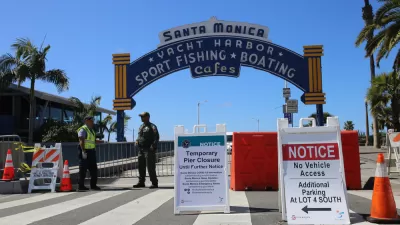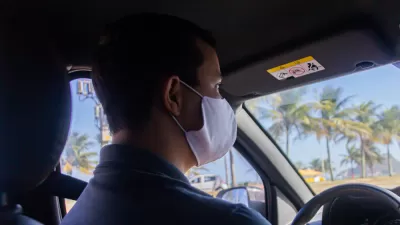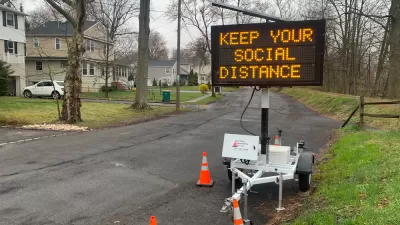Early in the pandemic, bike sales soared and vehicle miles traveled plummeted. As people have been driving more, more people have also been infected with the novel coronavirus.

Andy Olin provides a really thorough overview of the mobility trends in the United States since the outset of the COVID-19 pandemic in March.
The narrative is summarized thusly:
Traffic levels fell dramatically throughout the Houston metro area as people were ordered to stay at home and businesses were closed to mitigate the spread of COVID-19 — and it worked. But, as the economy was reopened and people returned to work, restaurants, bars, beaches and more, traffic levels and infection rates increased.
The article includes a mountain of data on bike sales and use, traffic and vehicle miles traveled, and air quality, providing specific examples from around the country and the nation as a whole, before drilling down on air quality data in the Houston area. Much of the information in the article has been reported before in separate media outlets and news coverage, but here we have all the relevant data in one place, clearly put in context and analyzed for potential implications.
But the article also includes a bombshell revelation that could potentially upend the ongoing narrative about density and transit being the most conductive modes for transmission of the coronavirus: when people drive more, more people are infected with the coronavirus.
FULL STORY: Traffic dropped 66%, but it came back and the coronavirus followed

Alabama: Trump Terminates Settlements for Black Communities Harmed By Raw Sewage
Trump deemed the landmark civil rights agreement “illegal DEI and environmental justice policy.”

Study: Maui’s Plan to Convert Vacation Rentals to Long-Term Housing Could Cause Nearly $1 Billion Economic Loss
The plan would reduce visitor accommodation by 25% resulting in 1,900 jobs lost.

Planetizen Federal Action Tracker
A weekly monitor of how Trump’s orders and actions are impacting planners and planning in America.

Wind Energy on the Rise Despite Federal Policy Reversal
The Trump administration is revoking federal support for renewable energy, but demand for new projects continues unabated.

Passengers Flock to Caltrain After Electrification
The new electric trains are running faster and more reliably, leading to strong ridership growth on the Bay Area rail system.

Texas Churches Rally Behind ‘Yes in God’s Back Yard’ Legislation
Religious leaders want the state to reduce zoning regulations to streamline leasing church-owned land to housing developers.
Urban Design for Planners 1: Software Tools
This six-course series explores essential urban design concepts using open source software and equips planners with the tools they need to participate fully in the urban design process.
Planning for Universal Design
Learn the tools for implementing Universal Design in planning regulations.
Caltrans
Smith Gee Studio
Institute for Housing and Urban Development Studies (IHS)
City of Grandview
Harvard GSD Executive Education
Toledo-Lucas County Plan Commissions
Salt Lake City
NYU Wagner Graduate School of Public Service





























